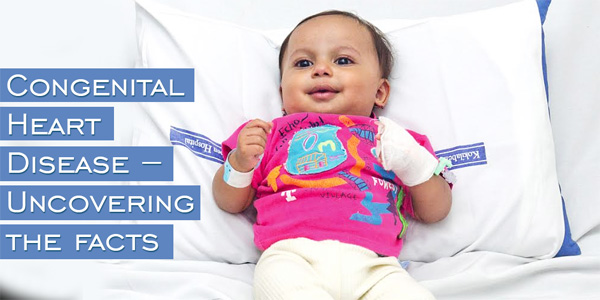One of the most evident misconceptions about heart problems is that, it can affect only adults but the fact remains that every year approximately 130,000 children in India are born with congenital heart disease. A person who is completely unaware of this medical term may not be able to comprehend its impact on his/her child’s life.
In simple terms, congenital heart disease is a birth defect that affects the natural mechanism of the baby’s heart. They are basically structural defects that appear in the heart and blood vessels
Inspite of being the most common kind of of birth defect, congenital heart disease has no known prevention or cure but it can most certainly be corrected through surgical and/or interventional procedures. Pediatric cardiac care in India is still in its early stages. Acute lack of awareness and inadequate health care facilities has pushed up cases of congenital heart disease in India. Misconceptions associated with this fatal disease can subsequently impact further treatment of the patient
Let us uncover a few essential facts about Congenital Heart Disease (CHD)
- Heart defects in kids is approximately 60 times more prevalent than childhood cancer
- Congenital heart defects could be simple like having “holes” between chambers of the heart, or complex such as complete absence of one or more chambers or valves. Such defects can be diagnosed before birth, after birth or during childhood
- More than 75% of infants born with critical heart disease can survive beyond a year and many can lead near normal lives after an open heart surgery
- Regardless of a child’s race, age, or social class, congenital heart disease, can strike unannounced but certain anomalies can be detected through vital tests during pregnancy
- Congenital heart defect is not a death sentence and it certainly doesn’t make the child imperfect or flawed. Timely diagnosis, surgical intervention and periodic follow-ups have helped hundreds of CHD patients live longer and healthier lives.
- More than 50% of all children born with a congenital heart defect will require at least one invasive surgery in their lifetime. Also, he/she may not be able to gain weight as rapidly as other infants hence parents and caregivers are expected to constantly remain in touch with the child’s pediatric cardiologist/heart surgeon through routine follow-up visits.
- Survival rates which were very low in past decades have improved drastically with the emergence of advanced testing and treatment options
Children’s Heart Centre at Kokilaben Dhirubhai Ambani Hospital is a world-class cardiac & critical care center offering medical & surgical care to neonates, infants and children with all types of heart ailments
Taking care of children with heart defects can be extremely difficult especially for parents and caregivers who are incapable of handling the financial hurdles that may arise due to expensive treatment. Thousands of children suffering from congenital heart disease succumb to their illness due to lack of funds for medical treatment. Funding from generous sponsors has helped many ailing little-ones receive optimum pediatric care with high success rates.
Come forward and lend your support to this noble cause. A little kindness could help many unfortunate little ones receive improved quality and accessibility of cardiac care


